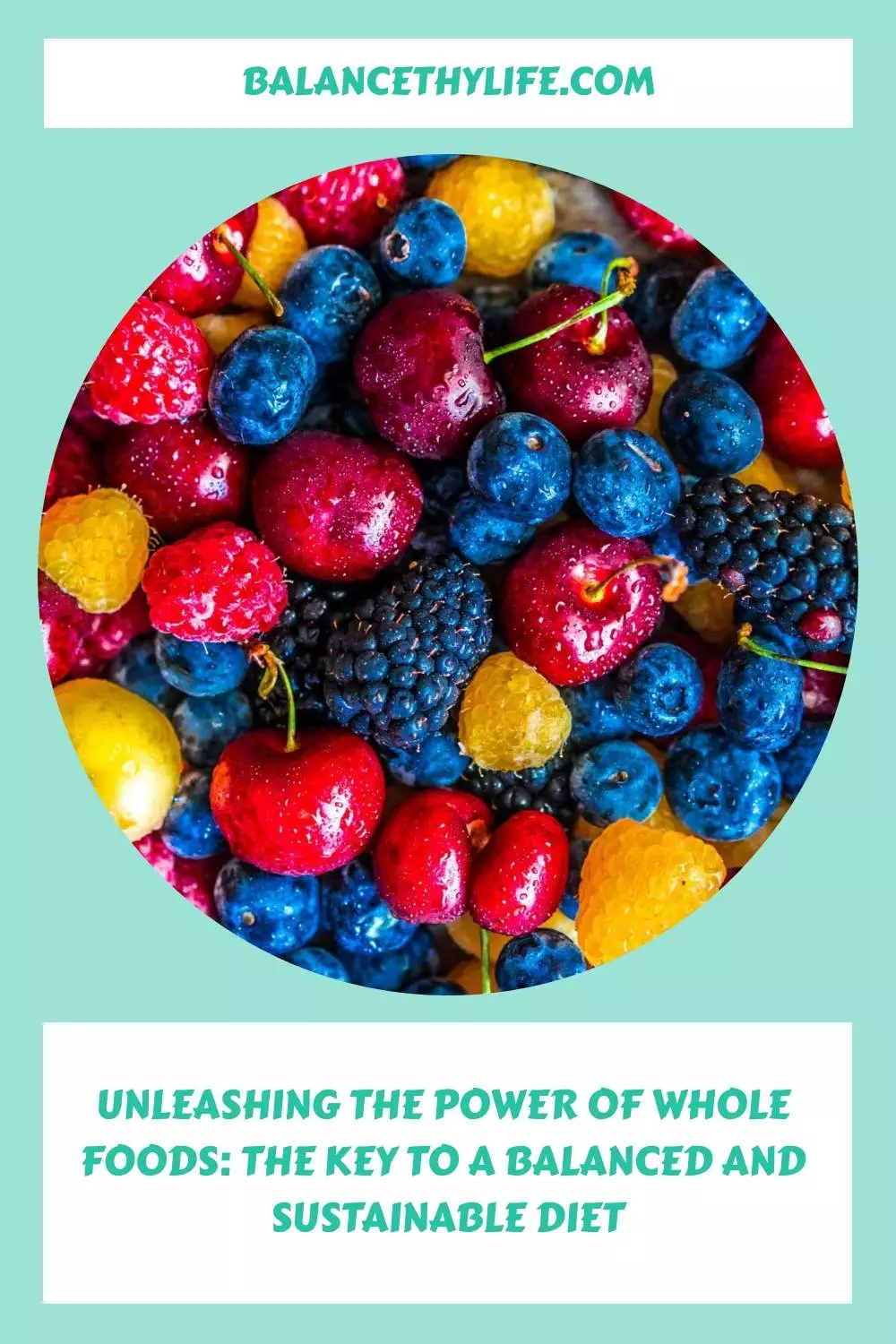Balanced nutrition is essential for maintaining optimal health, but it can be challenging to know where to start. With so much conflicting information out there, it’s no wonder people are confused about what they should be eating. One thing that is clear, however, is that whole foods play an important role in achieving balance and sustainability in your diet.
In this article, we will explore why whole foods are so critical for balanced nutrition, how you can create a sustainable meal plan using them, and why unleashing their power could be the key to reaching your health goals.
The Importance of Whole Foods in a Balanced Diet
Whole foods are those that have not been processed or refined in any way. They include fruits, vegetables, grains, legumes, nuts, seeds, and lean proteins like fish and chicken. These types of foods provide all the necessary vitamins, minerals, fiber, and other nutrients our bodies need to function properly.
When we consume whole foods, we get the full spectrum of benefits from each food item, including its phytonutrients (plant-based compounds) and enzymes. Phytonutrients help protect against chronic diseases such as heart disease, cancer, and type 2 diabetes. Enzymes aid digestion by breaking down complex carbohydrates into simple sugars, making them easier to absorb and use for energy.
Refined and processed foods, on the other hand, often lack these vital nutrients and can lead to imbalances in our body chemistry over time. For example, consuming too many sugar-laden products can cause insulin resistance, which increases the risk of developing type 2 diabetes.

How to Create a Sustainable and Balanced Meal Plan
Creating a sustainable and balanced meal plan starts with incorporating more whole foods into your daily routine. Here are some tips to get started:
1. Eat a variety of colors: Different colored fruits and veggies contain different nutrients, so aim to eat a rainbow of colors throughout the day.
2. Incorporate protein at every meal: Protein helps keep us feeling full and satisfied, so make sure to add it to every meal whether through meat, fish, eggs, dairy, or plant-based sources.
3. Choose healthy fats: Avocado, olive oil, nuts, and seeds are great sources of healthy fats that support brain function, reduce inflammation, and improve heart health.
4. Limit highly processed foods: While it’s okay to indulge occasionally, try to limit highly processed foods that lack nutritional value and can contribute to weight gain and chronic illnesses.
Conclusion: Unleashing the Power of Whole Foods for Optimal Health
By choosing whole foods over processed options, you can unlock the powerful benefits of a balanced and sustainable diet. Not only do whole foods provide essential nutrients, but they also taste delicious and can be prepared in countless ways. So, go ahead and experiment with new recipes and flavors while reaping the rewards of better health and wellbeing.









